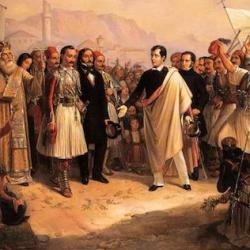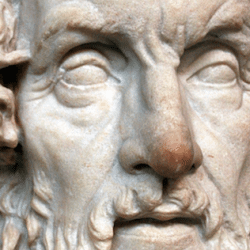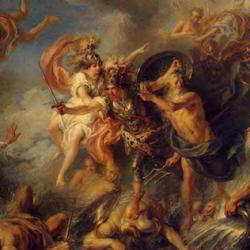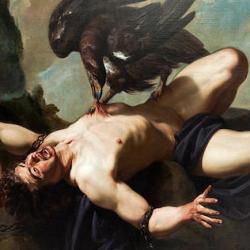In After Virtue , Alasdair MacIntyre provides a neat discussion of the virtue and selfhood in Greek antiquity. The unity of ARETE, virtue, “resides . . . in the concept of that which enables a man to discharge his role,” and refers to “excellence of any kind,” whether in a footrace, a battle, or in debate.
He compares the rules governing heroes, and the standards of judgment, to a chess player: “It is a question of fact whether a man is a good chess player, whether he is good at devising end-game strategies, whether a move is the right move to make in a particular situation. The game of chess presupposes, indeed is partially constituted by, agreement on how to play chess.” This is, he says, a “dangerous” analogy because people play chess for all sorts of purposes. Yet, the question of purpose does not arise for the hero:
“There is nothing to be made of the question: for what purpose do the characters in the Iliad observe the rules that they observe and honor the precepts which they honor? It is rather the case that it is only within their framework of rules and precepts that they are able to frame purposes at all.” In contrast to the “emotivist” self of modernity, the heroic self lacks the “capacity to detach oneself from any particular standpoint or point of view, to step backwards, as it were, and view and judge that standpoint or point of view from the outisde. In heroic society there is no ‘outside’ except that of the stranger. A man who tried to withdraw himself from his given position in heroic society would be engaged in the enterprise of trying to make himself disappear.”
The modern self appears here to be a corruption of the Christian self; because Christianity demands that the stranger be welcomed, not to remain a stranger, but to become a son along with the natural sons (Eph 2). The boundary-breaking hospitality of the gospel is a prior condition for the development of a self who can stand back from his projects as if from outside; the Christian self is the source of the cosmopolitan self. But the modern self is a corruption because the Christian self, for all the openness of its hospitality, its willingness to take the place of the stranger, is still grounded in a specific community, albeit a universal community. (All this to be taken with a large dose of “perhapses.”)
Back to MacIntyre: He argues that every hero knows that loss is his ultimate destiny; in one final battle, he will not be the victor but the dead defeated: “defeat is the moral horizon of the Homeric hero, that beyond which nothing is to be seen, nothing lies.” Homer the poet, however, is not the same as his heroes: “what Homer puts in question, as his characters do not, is what it is to win and what it is to lose” (Achilles does question this, from the underworld in Odyssey , Book 11). Homer recognizs that “winning too may be a form of losing.”
Finally, MacIntyre contrasts Nietzsche’s celebration of aristocratic virtue with the virtue of the Homeric heroes: “Niezsche had to mythologize the distant past in order to sustain his vision. What Nietzsche portrays is aristocratic self -assertion; what Homer and the sagas show are forms of assertion proper to and required by a certain role .” The heroic self, in contrast to the Nietzschean, is a “social creation,” and Nietzsche, for all his contempt for Enlightenment individualism, only comes up “with a set of individualistic fictions of his own.”















